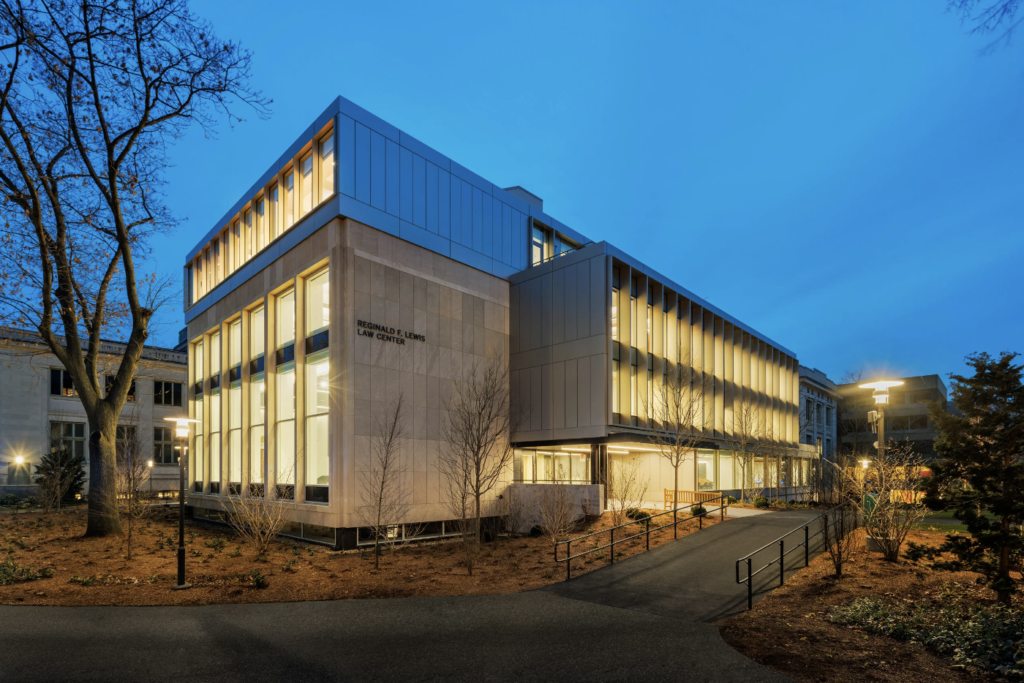
If you want to learn more about the Clinic, here are two events that may be of interest:
** The Cyberlaw Clinic Open House on Thursday, March 19, 2024 from 12:00– 1:30pm at Lewis Hall 4th Floor. Students are encouraged to check out the Clinic’s space, meet the teaching team, and learn about the work of the Clinic and our students.
** The annual Clinical Program Open House and Academic Advising Fair on Tuesday, March 26, 2024, from 11:30am – 1:30pm in 2036 Milstein East ABC. Representatives from the Cyberlaw Clinic will be there, along with folks from the extraordinary range of clinics that HLS offers. Our friends from the Office of Clinical and Pro Bono Services will also be on hand to answer nuts-and-bolts questions about registration.
Here are some answers to a few commonly asked questions about the Clinic:
What is the Cyberlaw Clinic? The Cyberlaw Clinic is Harvard Law School’s technology law and policy clinical program. Our students represent real-world clients dealing with real-world tech law, policy, and advocacy issues, working under the supervision of experienced attorneys.
How does the Clinic work? Students enroll in the Cyberlaw Clinic for 3, 4, or 5 credits (corresponding to an average of 12, 16, or 20 hours per week, respectively). Students simultaneously enroll in the Cyberlaw Clinic Seminar, a 2-credit seminar that covers fundamentals of the tech law practice and offers students the opportunity to share information about their cases and projects through case round discussions.
What does a typical Cyberlaw Clinic client or project look like? Feel free to poke around our website for information about the Clinic, representative clients, past cases and projects, and the like. We do a lot of behind-the-scenes counseling and advising (along with transactional work) for mission-driven startups, researchers, NGOs, and the like. We also do more public-facing projects. To highlight just a few recent examples of our work, the Clinic has:
** represented a documentary filmmaker in connection with a proposed streaming distribution license agreement for a documentary film short;
** filed an administrative comment with the National Institute of Standards and Technology on behalf of computer science professors, concerning AI regulation;
** worked with the Election Law Clinic on a comment to the Federal Election Commission about the use of AI in campaign ads;
** worked with a state agency reviewing options for financing broadband projects in poor and rural areas;
**assisted a group of cities evaluating ways to address state restrictions on municipalities providing internet service;
** filed an amicus brief in the United States Supreme Court on behalf of Authors Alliance and ComicMix in a case about the scope of trademark protection and free expression (all in the context of whiskey bottles and dog toys…); and
** helped journalists, researchers, and students respond to cease-and-desist letters, threats of litigation, and other attempts to suppress their speech.
** filed an administrative comment with the Federal Trade Commission on behalf of researchers, regarding transparency and commercial surveillance;
** filed a comment with the United States Patent and Trademark Office on behalf of Engine concerning patent subject matter eligibility;
** advised a non-profit on barriers to telehealth services for low-income communities, including Medicaid reimbursement issues and restrictions on out-of-state doctors
** filed a comment with the United States Department of Education on behalf of the Center for Democracy and Technology regarding Protect LGBTQI+ Students from Discriminatory Tech
** filed administrative comments on behalf of the Public Interest Patent Law Institute and American Civil Liberties Union regarding patent eligibility review;
**developed standards for a national laboratory regarding the privacy and ethical issues presented by a smart grid system for economically disadvantaged households;
** filed an amicus brief on behalf of library and information scholars and historians in a case regarding the copyright implications of controlled digital lending;
** filed an amicus brief in the Massachusetts Supreme Judicial Court on behalf of technology law scholars and clinicians in a case regarding gig workers’ rights;
** submitted an amicus brief to the Eleventh Circuit on behalf of the Electronic Frontier Foundation, Public Knowledge, and several cybersecurity researchers, supporting virtualization and security company Corellium in a case that Apple brought against the company alleging copyright infringement;
** supported the Surveillance Technology Oversight Project with an amicus brief to the Massachusetts Supreme Judicial Court about the constitutionality of cell tower dumps;
** worked with Public.Resource.org on an effort to increase public access to state model jury instructions in the face of state efforts to claim that such instructions are protected by copyright; and
** co-authored a white paper with the International Human Rights Clinic at HLS—Lockdown and Shutdown: Exposing the Impacts of Recent Network Disruptions in Myanmar and Bangladesh—in collaboration with Athan, the Kintha Peace and Development Initiative, and Rohingya Youth Association.
Do I need a technology background to enroll in the Cyberlaw Clinic?Absolutely not! We have students in the Clinic who’ve been programming computers since grade school and others with a passing or newfound curiosity about digital tech law and policy. We can accommodate anyone!
What about experience with particular tech law courses? Nope! We will ask you about your interests and experience when we begin assigning projects, as well as any relevant coursework. But, we go to great lengths to ensure that any student—regardless of past coursework—can succeed in the Clinic.
Who’s on the Clinic teaching team? The teaching team includes Kendra Albert, Chris Bavitz, Alejandra Caraballo, Wendy Chu, Susan Crawford, and Mason Kortz, along with Armelle Bernard and our friend and senior advisor Waide Warner. Check out our bios and related information for details about our respective areas of interest and practice expertise. As you can see, collectively, we have decades of experience working in a diverse range of technology law and policy practice areas, on behalf of private and public sector clients.
Do not hesitate to contact anyone on the Cyberlaw Clinic teaching team directly if you have questions about the program, our work, etc. We look forward to meeting you soon!
